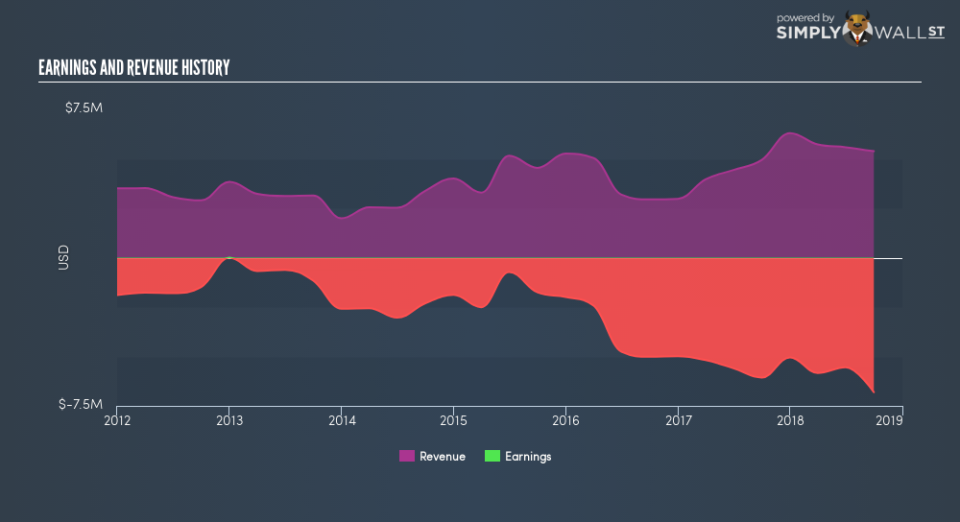Do Directors Own BIO-key International, Inc. (NASDAQ:BKYI) Shares?

Every investor in BIO-key International, Inc. (NASDAQ:BKYI) should be aware of the most powerful shareholder groups. Institutions often own shares in more established companies, while it’s not unusual to see insiders own a fair bit of smaller companies. I generally like to see some degree of insider ownership, even if only a little. As Nassim Nicholas Taleb said, ‘Don’t tell me what you think, tell me what you have in your portfolio.’
BIO-key International is not a large company by global standards. It has a market capitalization of US$16m, which means it wouldn’t have the attention of many institutional investors. Our analysis of the ownership of the company, below, shows that institutions don’t own many shares in the company. Let’s take a closer look to see what the different types of shareholder can tell us about BKYI.
Check out our latest analysis for BIO-key International
What Does The Institutional Ownership Tell Us About BIO-key International?
Institutions typically measure themselves against a benchmark when reporting to their own investors, so they often become more enthusiastic about a stock once it’s included in a major index. We would expect most companies to have some institutions on the register, especially if they are growing.
Institutions own less than 5% of BIO-key International. That indicates that the company is on the radar of some funds, but it isn’t particularly popular with professional investors at the moment. If the business gets stronger from here, we could see a situation where more institutions are keen to buy. When multiple institutional investors want to buy shares, we often see a rising share price. The past revenue trajectory (shown below) can be an indication of future growth, but there are no guarantees.
We note that hedge funds don’t have a meaningful investment in BIO-key International. There is a little analyst coverage of the stock, but not much. So there is room for it to gain more coverage.
Insider Ownership Of BIO-key International
The definition of company insiders can be subjective, and does vary between jurisdictions. Our data reflects individual insiders, capturing board members at the very least. The company management answer to the board; and the latter should represent the interests of shareholders. Notably, sometimes top-level managers are on the board, themselves.
Most consider insider ownership a positive because it can indicate the board is well aligned with other shareholders. However, on some occasions too much power is concentrated within this group.
It seems insiders own a significant proportion of BIO-key International, Inc.. Insiders have a US$5.2m stake in this US$16m business. It is great to see insiders so invested in the business. It might be worth checking if those insiders have been buying recently.
General Public Ownership
With a 45% ownership, the general public have some degree of sway over BKYI. While this group can’t necessarily call the shots, it can certainly have a real influence on how the company is run.
Private Company Ownership
Our data indicates that Private Companies hold 22%, of the company’s shares. It’s hard to draw any conclusions from this fact alone, so its worth looking into who owns those private companies. Sometimes insiders or other related parties have an interest in shares in a public company through a separate private company.
Next Steps:
While it is well worth considering the different groups that own a company, there are other factors that are even more important.
I always like to check for a history of revenue growth. You can too, by accessing this free chart of historic revenue and earnings in this detailed graph.
Ultimately the future is most important. You can access this free report on analyst forecasts for the company.
NB: Figures in this article are calculated using data from the last twelve months, which refer to the 12-month period ending on the last date of the month the financial statement is dated. This may not be consistent with full year annual report figures.
To help readers see past the short term volatility of the financial market, we aim to bring you a long-term focused research analysis purely driven by fundamental data. Note that our analysis does not factor in the latest price-sensitive company announcements.
The author is an independent contributor and at the time of publication had no position in the stocks mentioned. For errors that warrant correction please contact the editor at editorial-team@simplywallst.com.


